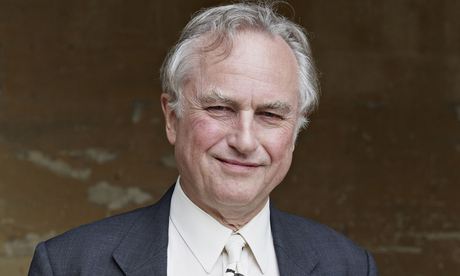
Identifying the thinkers who are "engaging most originally and profoundly with the central questions of the world today" is clearly a horribly tricky task, yet Prospect magazine has chosen to make its public intellectuals poll an annual affair, after previously leaving a five-year gap.
A year ago, judges including Amy Chua, Bernard Henri-Lévy and David Miliband decided on a longlist of 65, and public voting produced rankings headed by an all-male top 10, with Richard Dawkins at No 1. This time an unnamed "panel of writers and editors" picked 50 names which are almost laughably different, with all of the 2013 list's top five left out and only Ha-Joon Chang, Peter Higgs, Elon Musk, Martha Nussbaum, Arundhati Roy, Amartya Sen and Slavoj Žižek of its top 20 retained. Last year's celebrity panel, and last year's voters, have in effect been given a telling-off by these shadowy selectors.
As a result, the list resembles the third-round lineup at a Wimbledon where many of the seeds have already been knocked out. Besides Dawkins, the axed aces include Anne Applebaum, Niall Ferguson, Francis Fukuyama, Steven Pinker, Oliver Sacks, Sheryl Sandberg, Michael Sandel and Ai Weiwei, while among the joiners are Perry Anderson, Mary Beard, Judith Butler, Daniel Dennett, Pope Francis, Naomi Klein and Rae Langton. Jurgen Habermas is back in, but Noam Chomsky, the other octogenarian titan notably absent from the 2013 list, is still out.
If you were asked to imagine Prospect as a person you could well go for a middle-aged male don, a little pernickety but a sober and astute assessor of people and issues. Compare the 2014 list with the previous one**, however, and you might instead see the monthly magazine as a flighty, hormone-driven teenager, nonchalantly switching fads, friends and tribes as he or she updates a Facebook or Instagram list of favourite things. Twenty-two of the new list (44%) are women, a considerable advance on the blokeish 2013 squad. How has that been achieved? One factor is a marked increase in the number of philosophers, up this time from four to 14 (28%) to improbably make philosophy the second best-represented subject behind economics, which boasts a spectacular proportion (18, or 36%) of the cerebral galacticos; and it's helpful that women are well-represented in the latter field, too, although some will raise an eyebrow over the presence of economists who engage with the central questions of today by having power over the world today: if you include Christine Lagarde and Janet Yellen, why not find room for author and former law professor Barack Obama?
With philosophers coming in, but 15 fewer ranking places available, other groups have had to be chucked out (or, in the case of scientists, of which only six make the 2014 cut, remain under-represented): historians fare badly, as do Middle Eastern politicians and sages now the Arab spring has turned wintry. Also among the casualties are authors of fiction and creative non-fiction, with Katherine Boo, David Grossman, Hilary Mantel, Andrew Solomon and Zadie Smith all out. That leaves Marilynne Robinson as the only current novelist deemed worthy of a place; and she was probably helped by also being an essayist who has produced more non‑fiction books than novels.

